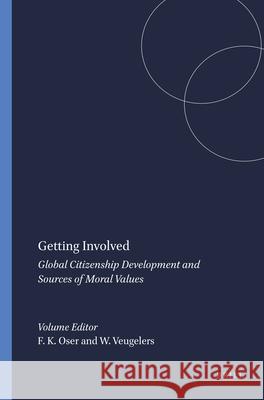Getting Involved : Global Citizenship Development and Sources of Moral Values » książka
Getting Involved : Global Citizenship Development and Sources of Moral Values
ISBN-13: 9789087906344 / Angielski / Miękka / 2008 / 392 str.
Getting involved in society means becoming a human person by doing something for others and thus being connected to mankind and society. Youngsters who get involved, give meaning to life and develop a feeling of agency. But getting involved is not easy. Getting involved is necessary for living together, creating democracy and sustainability of a global world. The paradox is that in a modern, multicultural society getting involved is even more important than in a traditional, more monocultural society. Getting involved relates to various scientific orientations. Political, sociological, psychological and pedagogical questions are at issue, and all of these will be consulted in this volume. The main perspective however remains the issue of identity development relating to getting involved, and will therefore be psychological. This book gives a broad overview of current research in the field of moral development and citizenship. It shows the diversity of concepts, research methodologies, and educational practices. The book also shows the influence of local social, cultural and political contexts. The book can help researchers, teacher educators, politicians and practitioners in finding new and better ways of supporting youngsters in their moral and civic identity development."
‘Getting involved’ in society means becoming a human person by doing something for others and thus being connected to mankind and society. Youngsters who get involved, give meaning to life and develop a feeling of agency. But ‘getting involved’ is not easy. Getting involved’ is necessary for living together, creating democracy and sustainability of a global world. The paradox is that in a modern, multicultural society ‘getting involved’ is even more important than in a traditional, more monocultural society. ‘Getting involved’ relates to various scientific orientations. Political, sociological, psychological and pedagogical questions are at issue, and all of these will be consulted in this volume. The main perspective however remains the issue of identity development relating to ‘getting involved’, and will therefore be psychological.This book gives a broad overview of current research in the field of moral development and citizenship. It shows the diversity of concepts, research methodologies, and educational practices. The book also shows the influence of local social, cultural and political contexts. The book can help researchers, teacher educators, politicians and practitioners in finding new and better ways of supporting youngsters in their moral and civic identity development.











